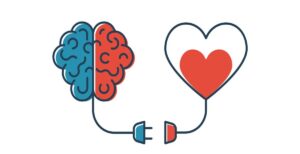
Emotional intelligence or EI, also known as emotional quotient or EQ. For the purpose of this article I will refer to it as EQ. EQ refers to the ability to recognize, understand, manage, and use emotions effectively in oneself and with others. It encompasses several key component in people’s lives such as :
-
Self-awareness: Recognizing one’s own emotions and their effects.
-
Self-regulation: Managing or redirecting negative emotions and impulses.
-
Motivation: Harnessing emotions to pursue goals with energy and persistence.
-
Empathy: Understanding the emotions of others and responding accordingly.
-
Social skills: Managing interpersonal relationships in a day to day life.
Benefits Of EQ In General Life
1. Improved Relationships: EQ helps in understanding and managing emotions in relationships. Recognising others’ emotions and responding appropriately can lead to more fulfilling and healthier relationships.
2. Better Communication: By being aware of your own emotions and the emotional state of others, you can communicate more effectively, avoiding misunderstandings and helping to avoid any potential conflicts.
3. Stress Management: High EQ allows individuals to cope with stress better by understanding the root causes of their stress and taking steps towards managing their emotional responses and reactions.
4. Personal Growth: Self-awareness and self-regulation are key areas of personal development, leading to more resilience, a positive outlook, and better decision-making.
5. Empathy and Compassion: Understanding other people’s emotions promotes empathy and compassion, which can enhance social interactions and interpersonal reputation.
Benefits Of EQ In The Work Place
1. Leadership: Leaders with high EQ can inspire and motivate employees, manage stress, communicate effectively, and resolve conflicts, leading to a more productive and positive work environment.
2. Teamwork: EQ helps improve collaboration among team members. Recognising and managing emotions and being more empathetic with others can lead to a more cohesive and effective team.
3. Conflict Resolution: High EQ will help to identify the emotions driving interpersonal and in-office conflicts, allowing for more effective and amicable resolutions between staff.
4. Adaptability: EQ contributes to better adaptability and agility in the workplace. Managing emotions can help individuals navigate change and uncertainty more effectively.
5. Performance: Employees with high EQ are often more productive, as they can manage their own emotions, stay motivated, and tackle stressful tasks more effectively.
Practical Tips To Develop EQ
-
Practice Self-awareness: Regularly reflect on your emotions and their impact on your thoughts and behaviour. Keeping a journal can help with this process.
-
Regulate Emotions: Develop strategies to manage your emotions, such as deep breathing, mindfulness, taking a break and exercising.
-
Enhance Empathy: Practice active listening and put yourself in others’ shoes to understand their perspectives and feelings better. Speak less, Listen more.
-
Improve Social Skills: Work on communication skills, be open to feedback both constructive and critical, practice conflict resolution by dealing with blame and owning up to mistakes.
-
Stay Motivated: Set personal and professional goals and be consistent. Recognise your accomplishments and keep a positive mental attitude also known as PMA.
Conclusion
Overall, emotional intelligence or EQ enhances personal well-being and contributes significantly to success and fulfilment in various aspects of life. It involves continuous learning and practice to develop and refine these skills over time.
Basically an individual must have the ability to stay in control of one’s emotions no matter the situation. Always trying one’s best to rise above the situation and keeping cool, calm and collective whilst staying focused on the bigger picture or the desired end result.
By integrating these practices, individuals can improve their emotional intelligence, which in the long term will greatly benefit both their personal lives and professional careers.
